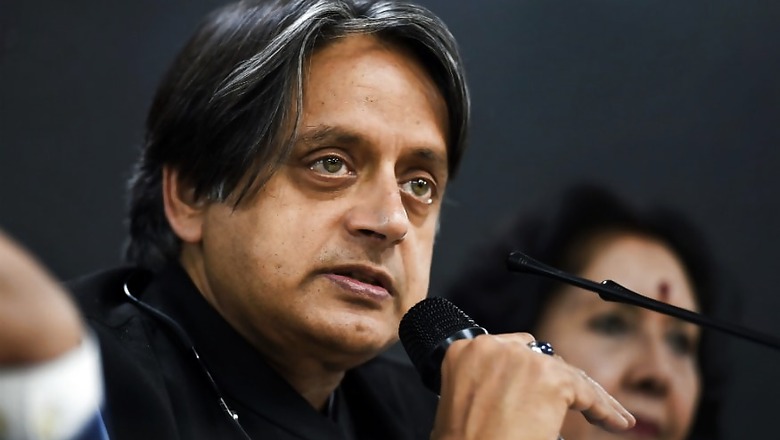
views
New Delhi: Senior Congress leader Shashi Tharoor said on Sunday Pakistan’s founding father Muhammad Ali Jinnah’s victory would be complete in the Citizenship Amendment Act (CAA) leads to the implementation of the National Population Register (NPR) and (NRC) as a large section of the Indian population would then be deprived of rights once they fail to prove their citizenship.
On being asked about his reported remark that “implementation of the CAA would be fulfillment of Mohammed Ali Jinnah’s two-nation theory”, the Thiruvananthapuram MP said, “I would not say Jinnah has won but he is winning.
Tharoor, who was speaking at the Jaipur Literature Festival on Sunday, said, “If the CAA would lead to NPR and NRC, that would pursue the same line. If that happens, you can say that Jinnah's victory is complete. From wherever Jinnah is, he would say he was right that Muslims deserve a separate nation because Hindus cannot be just towards Muslims.”
Jinnah was a strong votary of the two-nation theory that says Hindus and Muslims are two separate peoples belonging to two different religious philosophies with different social customs and literature.
On Friday, the parliamentarian, who has been a vocal critic of the amended Citizenship law and proposed implementation of the NRC, said the two-nation theory (that led to the formation of Pakistan) was first advocated by Hindutva ideologue Veer Savarkar.
"The first advocate of the two-nation theory was actually VD Savarkar, as head of Hindu Mahasabha, who called upon India to recognise Hindus and Muslims as two separate nations, three years before Muslim League passed the Pakistan resolution in Lahore," said Tharoor.
He also said during the time of Partition, the biggest question was "should religion be the determinant of nationhood".
The Lok Sabha member said a "vast majority on the Indian side led by (Mahatma) Gandhi and (Jawaharlal) Nehru, and many others, said 'no, religion does not determine your identity, it does not determine your nationhood, we fought for the freedom of everyone and created a country for everyone'".
“Savarkar said a Hindu was somebody for whom India was his ‘pitrabhumi’ (the land of his ancestors), and his ‘punya bhumi’ (his holy land). So, by that definition, Hindus, Sikhs, Buddhists and Jains filled both the categories but Muslims and Christians did not," Tharoor said, adding the Hindutva movement "explicitly rejected the Constitution".
Protests have erupted in several parts of the country over the citizenship law ever since it was passed on December 11 by Parliament and have led to clashes at several places in which quite a few lives have been lost.
According to the amended law, members of Hindu, Sikh, Buddhist, Jain, Parsi and Christian communities who have come from Pakistan, Bangladesh and Afghanistan till December 31, 2014 due to religious persecution there will not be treated as illegal immigrants but given Indian citizenship.
Critics fear the combined effect of the Act and implementation of NPR and NRC would target Muslim citizens, many of whom may not be able to provide the required documents.
(With inputs from agencies)

















Comments
0 comment